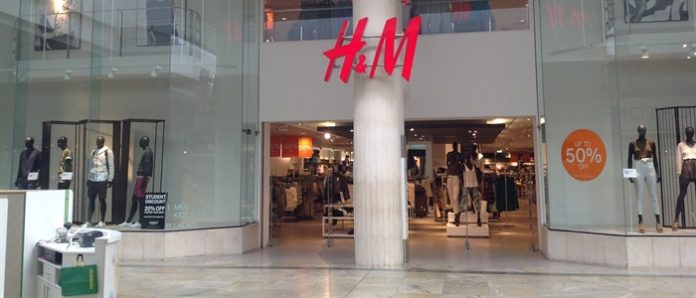Despite the gloomy outlook for the retail sector worldwide in 2019, the continuous expansion of H&M in South Africa paints a totally different picture for the renowned fast fashion giant. While we are used to seeing worrying headlines about the end of yet another retailer every other day, H&M’s new store openings in two major cities – Bloemfontein and Port Elizabeth – not only reaffirms the company’s ability to differentiate its offering among tons of competition in the disposable ‘fast fashion’ market.
As Oldouz Mirzaie‚ H&M country manager for South Africa explains, the expansion – underpinned by the company’s upcoming collaboration with several local brands – underlines the company’s commitment in investing in the South African economy through continuous job creation.
The Swedish clothing retailer opened its first Port Elizabeth store, at Walmer Park shopping centre on Thursday (March 28), and will be followed by another store launch at the Bloemfontein’s Loch Logan Waterfront on April 12. Further expansion includes an H&M Home extension to its existing flagship store at the Gateway Theatre of Shopping in Durban.
Later in the year, H&M will open another store at the Johannesburg’s Fourways Mall, ultimately bringing the total local workforce to 900 employees – from 800 – across 26 South African stores, its distribution centre and offices.
 Oldouz Mirzaie‚ H&M country manager for South Africa
Oldouz Mirzaie‚ H&M country manager for South Africa
“In addition to our explantion plans, we are working on a very exciting designer collaboration with a South African fashion designer and can’t wait to share more information in the next few weeks,” says Mirzaie, adding: “We will also soon start testing production in South Africa and have employed a supply chain specialist into our SA organisation to drive this project forward with the support of SACTWU, EDD and the IDC.”
In case you are wondering how H&M continues to dominate the market even in the face of the ongoing retail apocalypse, here’s how: “We’ve learnt that understanding our customers must be done even more actively; listening to what they tell us and addressing their wishes and concerns in ways that are meaningful,” says Mirzaie. “We know that as a global brand, we carry a responsibility to not only be aware of, but to be attuned to racial and cultural sensitivities. We’re confident that we’re putting the right strategies in place to make a real and sustainable difference and to promote inclusivity and diversity within our company and hopefully within the fashion industry.”
Part of the solution to sustainable development
H&M is the world’s second largest fashion chain after Inditex, the owner of Zara. With the company having long been the target of concerns around the impact of fast fashion from both the environmental and social perspective, it comes as no surprise that it has pledged to become Climate Positive by 2040 through its entire value chain, by eleminating greenhouse gas emissions from its operations.
The view that businesses can play a huge part in addressing complex social and environmental problems is something that H&M fully embrace. One way of doing this is by “building partnerships that promote sustainability by leading change together,” ultimately demonstrating commitment to local communities, adds Mirzaie.
Listed on Ethisphere’s Most Ethical Companies honoree list for 2019 – for exemplifying and advancing corporate citizenship, transparency and standard of integrity – since 2015 H&M has supported the Desmond & Leah Tutu Legacy Foundation in South Africa and will continue to do so in 2019. Further relationships with the Ahmed Kathrada Foundation, the Anti-Racism Network of SA and the SA Human Rights Commission, among others, have been formed.

